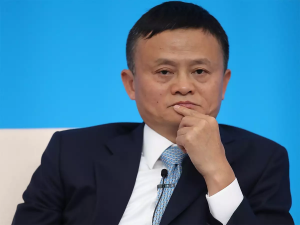In May 2018, China announced that it was beginning to draft new regulations that would curb the unchecked growth of financial holding companies such as Jack Ma’s Ant Group, that were said to be posing systemic risks to the nation’s $12.7 trillion economy. On Sunday, the new rules were issued outlining how The State Council, China’s Cabinet, intends to regulate the market access of financial holding companies as of November 1 this year.
According to Pan Gongsheng, Vice Governor of the People’s Bank of China (PBOC) at a news conference on Monday, the measures are aimed at “plugging regulatory loopholes, preventing systemic risks and enhancing financial support to the real economy.”
Until now it appeared that there was nothing in the way of Ant Group’s extraordinary growth, as the company chartered services in online payments, insurance, lending, credit scores, and asset management. With no other company like it, Ant Group can only be described as an amalgamation of other global giants like PayPal, Geico, Wells Fargo, Equifax, and even BlackRock.
Of Ant Group’s seemingly unstoppable growth, Dong Ximiao, a Senior Researcher at Renmin University of China in Beijing said, “Regulators have been a bit slow in reacting to Ant’s meteoric rise, but the consensus now is that something must be done.” Chen Shujin, Chief Financial Analyst at HuaTai Securities Co. in Hong Kong further adds, “in China the government tends to take a laissez-faire attitude, until you are big enough.”
In a statement shared by PBOC, the new rules are set to stem loopholes in supervision and regulation systems. This is in direct response to the small number of companies charting unregulated growth, expanding blindly into the financial sector without isolation mechanisms and while accumulating risks.
Per the rules, companies must have at least ¥5 billion ($731.7 million) in capital to be licensed as financial holding firms. The total number of assets that financial holding firms can manage face new regulations as well. Companies that hold banking assets will be required to have at least ¥500 billion in total assets, and those that do not carry banking assets should have at least ¥100 billion in assets.
Five holding companies, including Ant Group, are being put into a new pilot scheme to test their ability to manage risks. This comes at an inconvenient time for Ant Group, as the company seeks to finalize a $10 billion funding round poised to launch one of the most highly anticipated stock-market listings since Ma took Alibaba Group public in New York in 2016. Despite benefiting greatly from a lucrative era in Chinese financial regulation that enabled tech-savvy startups to profit, Ant Group also now faces growing competition from Tencent Holdings Ltd. The social media giant has also announced that it will be growing into financial services.
While neither Ma nor Ant Group have been cited to have broken any rules to land the company in hot water with officials, policy makers are focused on enforcing tougher restrictions on the company. “Regulatory restrictions will likely cause some short-term pain,” said Armstrong Chen, Director for Banking Law and Practices at the Shanghai Law Society. “Unchecked expansion will no longer be possible.”
























